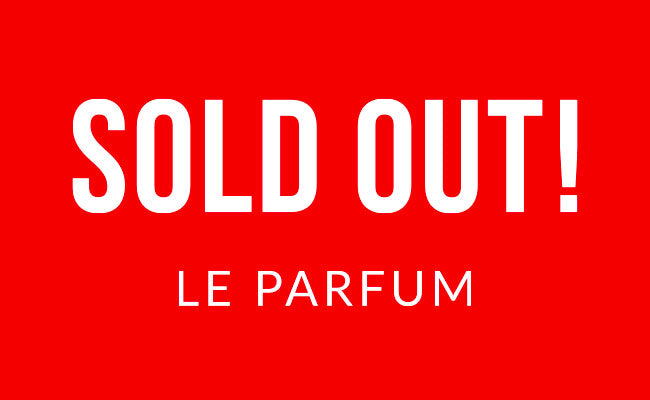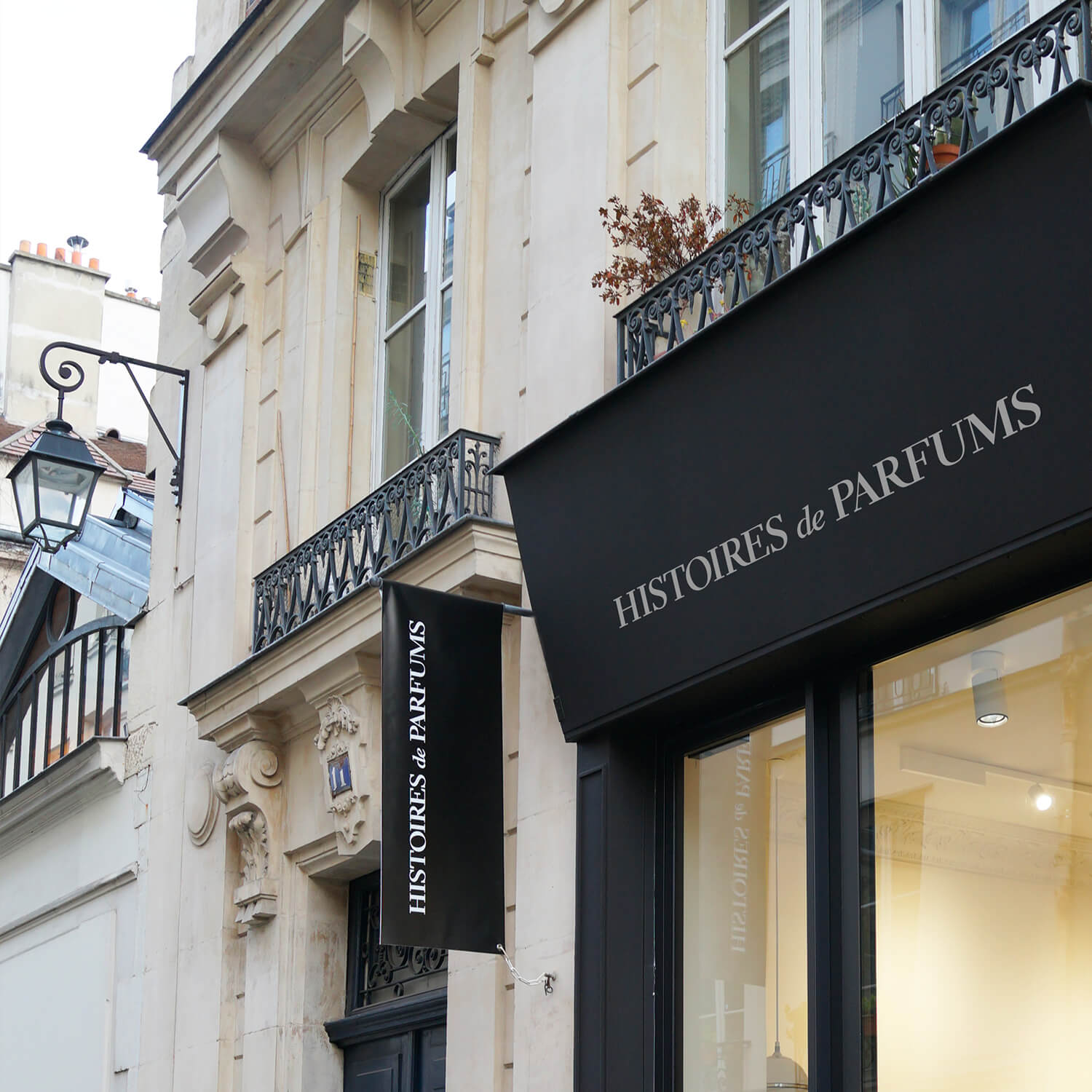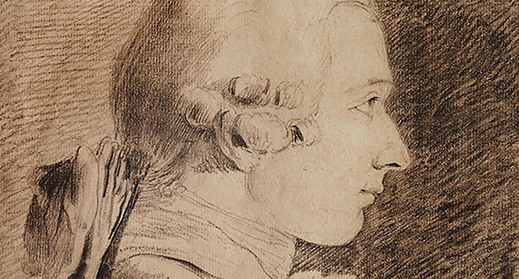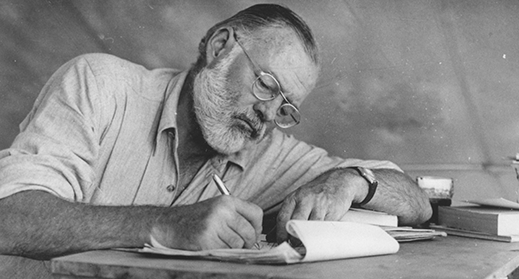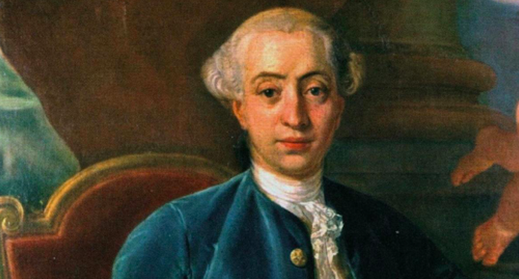
1725 — Giacomo Casanova

An adventurer, intellectual, spy, musician, diplomat and writer, Giacomo Casanova was a magnetic man of many hats. His savvy was his currency. 1725 eau de parfum is reminiscent of the enterprising Casanova, a man who’s name would epitomize irresistible charisma, wonderment and respect for centuries to come. Spray 1725 and you too can become the charming polymath, the savvy Renaissance man with the many hats...
Born in 1725, Casanova was the child of two actors in the independent state of Venice. By his early twenties, Casanova was expelled from the Seminary of St. Cyprian, dropped out of military service, and earned his living by the strings of his violin. A charming and impassioned libertine, Casanova frequented Do Spade bar. On one such occasion, he and friends tricked a young woman into engaging in the pleasures of the flesh in exchange for saving her husband—supposedly in grave danger. In his autobiography, Casanova writes, “We had to laugh after she thanked us as frankly and sincerely as possible.” Vulgar, deceitful, and cruel as this was, one must admire Casanova’s unflinching confrontation with his own imperfect nature.
That same year, Casanova fell into the immediate favor of a Venetian senator Don Matteo Bragadin after saving him from a fit. Taken under the Senator’s powerful, aristocratic wing, the tall, handsome, fashionable (read: curled, powdered, and scented hair), confident, and newly wealthy Casanova entered the prime of his life.
Casanova’s magnetism even bent the will of noble-born Nun M.M. (Marina Morosini). Spiriting her away from her convent via gondola, Casanova deflowered M.M. and “showed her the many things she had considered fictions.” The conquest continued when M.M.’s French ambassador lover elevated their engagement to a threesome. The young Nun C.C. (Caterina Capretta) was the final addition to this debauchery and just the beginning of Casanova’s hundreds of seductions.
His libertine escapades came to a quick halt in 1755, when the 30-year old Casanova was arrested by the state of Venice for blasphemy alongside his activities as a magician, Freemason, and astrologer. He was sentenced to imprisonment at The Leads. It was here that Casanova staged the most famous prison break in history: escaping by the roof and enlisting a monk in the process. No prisoner had ever broken free before. For this, Casanova earned fame across Europe and exile from Venice by the same token.
A savvy man who knows no bounds, Giacomo Casanova created a new identity: Chevalier de Seingalt. Chevalier would traverse Eurasia riding approximately 40,000 miles by stage coach from Spain to St. Petersburg, stopping in Paris, London, Rome, Geneva, Warsaw, Prussia, Switzerland, Germany, the Netherlands, Bohemia and many more in between. On these travels he would meet King George III, Catherine the Great, Frederick the Great, Voltaire, Benjamin Franklin, and most likely Mozart. All the while, introducing the lottery and then gambling in Paris and London, attending literary salons, debauching in brothels, dueling over women, and spying for France in Amsterdam.
Later in life, the Chevalier became secretary to the Venetian ambassador in Vienna, a line of work that often brought him to the European hub of Prague. At the ambassador’s death in 1785, the Chevalier settled into the quiet life of a librarian for Count Joseph Waldstein at Castle Dux in remote Dux, Bohemia. To stave off boredom and depression, the Chevalier wrote his magnum opus, his autobiography, Histoire de Ma Vie. His story ended mid-sentence at 49. Casanova did not want to write his story past 50, the age at which he ceased enjoying life’s many pleasures — although his life ended quietly at 73. “What pleasure in remembering one’s pleasures!” Casanova writes, “It amuses me because I am inventing nothing.”
Two names, dozens of professions, and too many cities to accurately count, Giacomo Casanova was a continental man, and a self-made man at that. He knew aristocracy and penny-pinching in equal measures. He was a Venetian writing in French and living in German-speaking Bohemia. He wrote verse, criticism, satire, and translated The Iliad into his Venetian dialect. He had no wife, no claimed children, no permanent home. Even he, in all of his adventure and glory, did not transcend the human condition. Casanova writes, “there is a happiness which is perfect and real as long as it lasts; it is transient but its end does not negate its past existence and prevent he who has experienced it from remembering it.” If not in life, in memoir Casanova was an honest man.
1725 is a composition of the many of Casanova: bold yet smooth, unmistakable yet discreet, known yet ambiguous. A mélange of bergamot- and grapefruit-spiked citrus duel with licorice’s soothing sweetness. A crystalline lavender tonic is slowly obscured by muddled star anise—the purple flower’s aromatic sillage is made more intimate, less predictable, by that celestial spice. The intoxicating duet keeps you close, makes you stay. Sweet powdery almond settles into a cushion of amber woods; the intimate aura of the Renaissance man in his prime. A zesty, modern, and seductive creation, 1725 will provoke an olfactory lust and wonderment in all who smell it.
written by Madison Hofert

